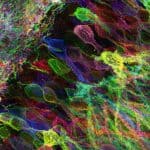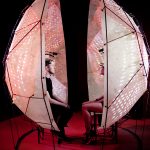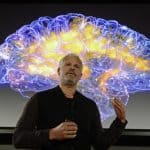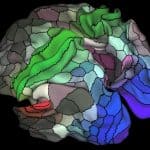CNS 2017 Press Release March 26, 2017 – San Francisco – Researchers have identified more than 100 genes important for memory in people. The study is the first to identify correlations between gene data and brain activity during memory processing, providing a new window into human memory. “This is very exciting […]
Calling all cognitive neuroscientists: Some great music is coming to a conference near you. After delighting crowds in New York City at last year’s CNS conference, rock band Pavlov’s Dogz is back for CNS 2017 in San Francisco on Sunday, March 26. Launched at an open-mic night at a small […]
Increasingly, the courts are turning to neuroscientific data as additional evidence in making legal decisions. From examining questions of impaired ability to even issues of diversity and bias, neuroscience and the law are intersecting more frequently. A key question often at stake is at what age is are people’s brains […]
Guest Post by David Mehler, Cardiff University and University of Münste Imagine being able to see and then control your brain activity consciously in real-time. For example, when thinking about a positive life event like your birthday, you would see the activity in areas of your brain’s limbic system increase […]
Guest Post by Angela Grant, Pennsylvania State University Over the last few years, you may have noticed a surfeit of articles covering current research on bilingualism. Some of them suggest that bilingualism “sharpens the mind,” while other titles are clearly intended to provoke more doubt than confidence: “Is Bilingualism Really […]
The Cognitive Neuroscience Society (CNS) is an international society that values diversity and global collaboration as cornerstones of the scientific process. CNS stands with the Society for Neuroscience, the American Association for the Advancement of Science, and other professional and scientific societies in opposing the recent White House executive order on […]
Even among the healthiest people, aging takes a toll on the brain – changing and often decreasing our cognitive capabilities. Science fiction writers have long imagined ways to maintain and enhance cognition in the face of aging, disease, or otherwise. Increasingly, scientists are investigating ways to make that happen. One […]
After taking my kids to see Moana recently, I was struck by how differently they relayed the story to their dad than I did – different parts stood out to them as being especially funny or scary, and they used very different words to describe the plot and characters. Thus, […]
While an undergraduate chemistry major at Caltech, David Van Essen read The Machinery of the Brain by Dean Woolridge. Published in 1963, the book gives an engineer’s perspective of the biological foundation of brain function, likening it to a computer. “That immediately hooked me on neuroscience, and I never looked […]

March 7 – 10, 2026









